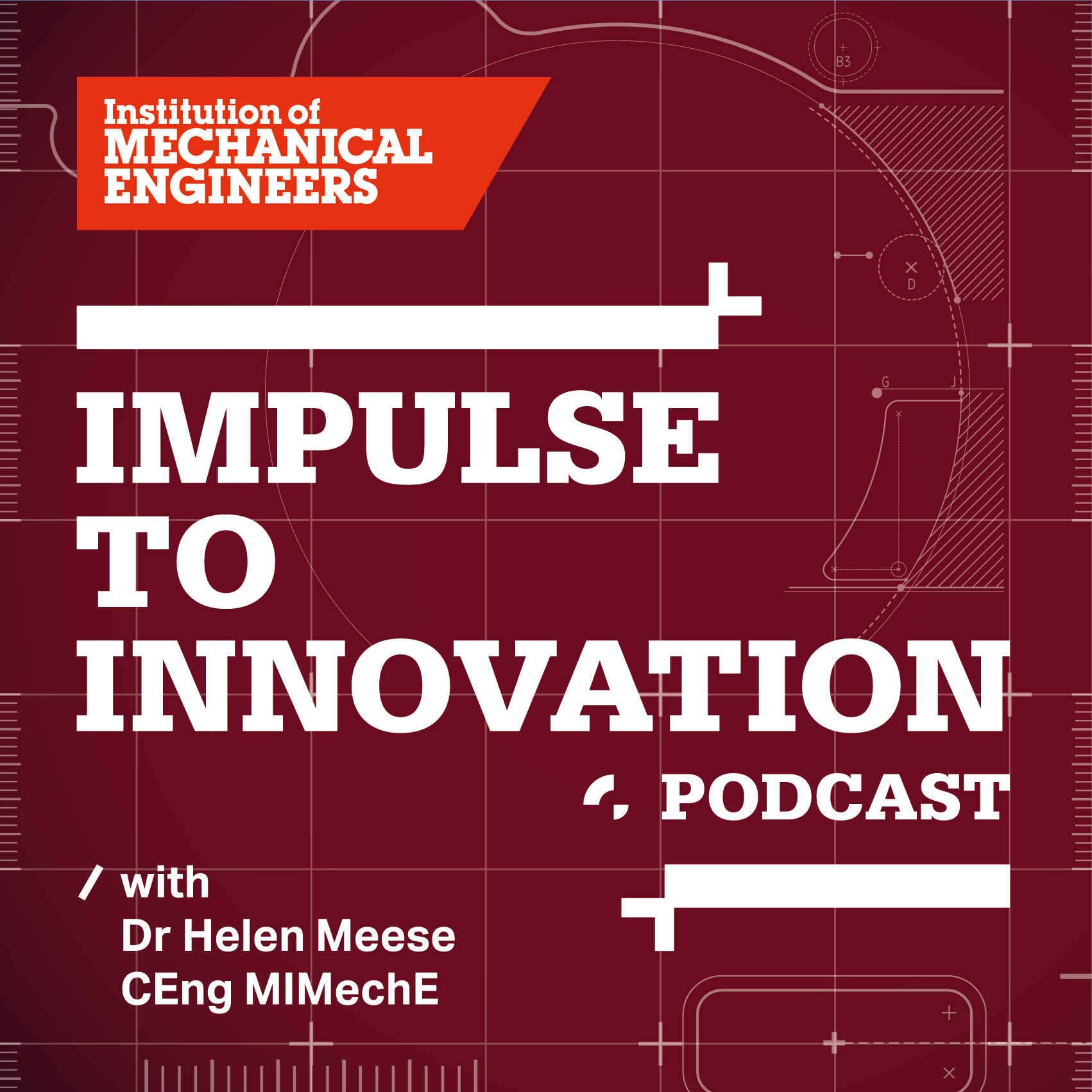Episodes
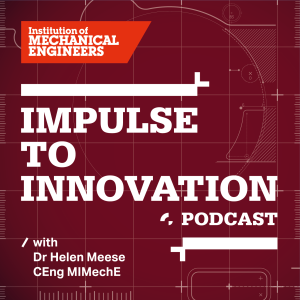
Tuesday Feb 07, 2023
Season 4 Episode 1: Strategy & Impact - IMechE’s Aspirations for 2023
Tuesday Feb 07, 2023
Tuesday Feb 07, 2023
Hello and welcome to the new season of Impulse to Innovation.
Believe it or not, as of the end of December 2022 we have produced 30 episodes of the podcast, reaching 98 countries with over 14 ½ thousand downloads. Thank you so much to you, our listeners for continuing to support our show, we really appreciate it.
Don’t forget you can subscribe to the show here on our main site or via any podcast services you use. If you prefer, you can also listen to us on the IMechE’s website via the newly embedded audio link on the home page. We also love hearing from our listeners so don't forget you can email us via Podcast@imeche.org Let us know what you think of the show, experiences you’d like to share with us or even to give us ideas for things you’d like to hear.
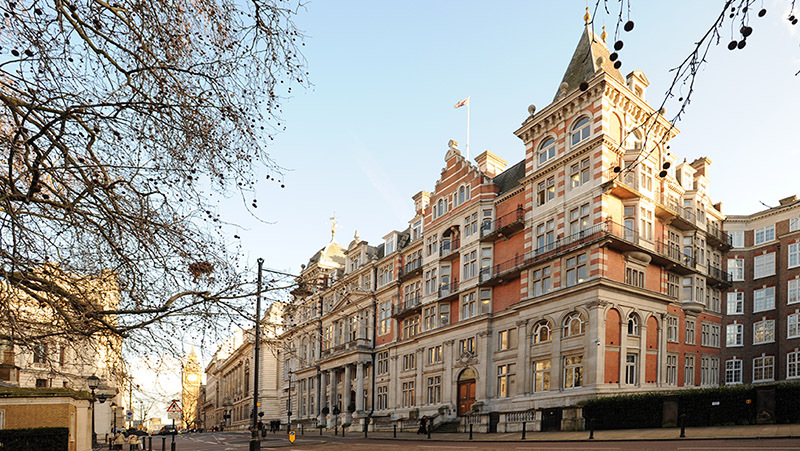
We have some fascinating engineering topics planned for the coming year, including innovations in composite materials, how measurement standards are created and maintained and energy and transport issues. We will be looking at the latest developments in education and skills for engineers, as well as the public perception of our profession.
We will also be sharing some of the policy work the HQ team will be undertaking and the extensive events calendar planned by both the technical divisions and groups as well as across our 16 regions. There's going to be something for everyone.
In this month's episode Helen kicks off with a look at what the year ahead has in store for the IMechE; focusing on the Institution’s up-coming strategy release in May and its 2023 aspirations, as well as the role the Technical Strategy Board plays in ensuring the IMechE’ s members have a platform to share the latest thinking and expertise from its 18 groups and divisions.
Helen's guests are James Partington and Paul Jones.
James is the newly appointed Director of Engineering Policy and Impact and joined the Institution in October last year with the task of ensuring members’ engineering expertise is heard as widely as possible in Government and the broader community.
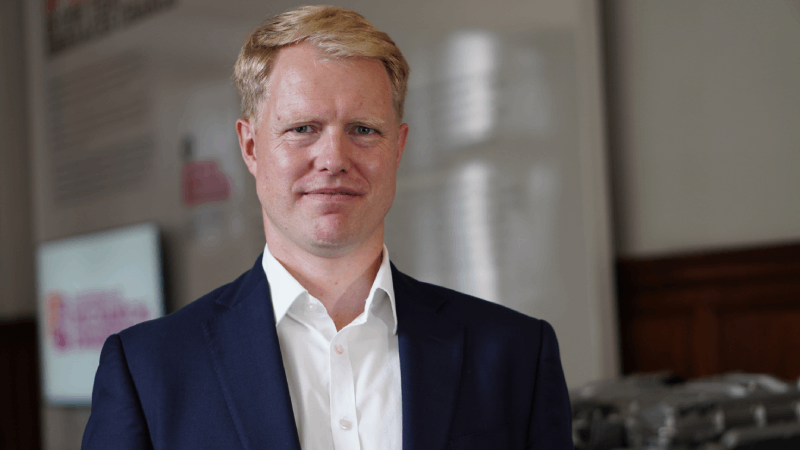
Paul Jones is a Fellow of the Institution, Past Chair of the Automobile Division and is presently the chair of the Technical Strategy Board, one of 7 operational boards, which provide insight and guidance to the Trustees. Helen spoke with Paul on the podcast this time last year and wanted to catch up with him to get his thoughts on the past year of events and happenings in the divisions and groups, as well as discuss the vital work being carried out by the TSB members in creating a long-term plan to raise the voice of mechanical engineering and generate greater impact in society.
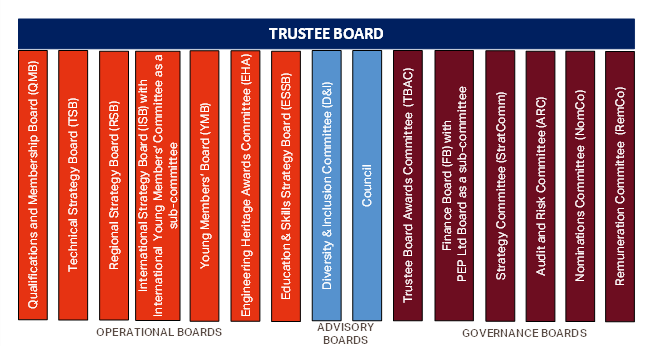
We would love to hear your thoughts and comments on this episode. If you would like to get in touch, email us at podcast@imeche.org
You can find more information about the work of the IMechE at www.imeche.org

Tuesday Dec 06, 2022
Season 3 Episode 11: Sustainable Healthcare – Creating a Net Zero NHS
Tuesday Dec 06, 2022
Tuesday Dec 06, 2022
Despite the all-consuming mission of the global healthcare sector to ‘do no harm’ and protect society from illness, disease, and death it is, according to NGO ‘Health Care Without Harm’, the fifth largest emitter of global emissions on the planet.
Indeed, healthcare’s climate footprint is estimated to be 4.4% of global net emissions; that’s equivalent to the output from 514 coal fired power stations, making it comparable in significance to the food sector in terms of climate impact. It seems ludicrous to think that the act of caring for those suffering from health conditions brought about by climate change, is partially responsible for their condition in the first place.
It is quite clear then, that the healthcare sector, both clinical and technological, must address their alarming contribution to the climate crisis. A two-pronged approach is needed, one which treats those made ill, injured, or dying from the climate crisis, and the second which drastically reduces its own innate contribution.
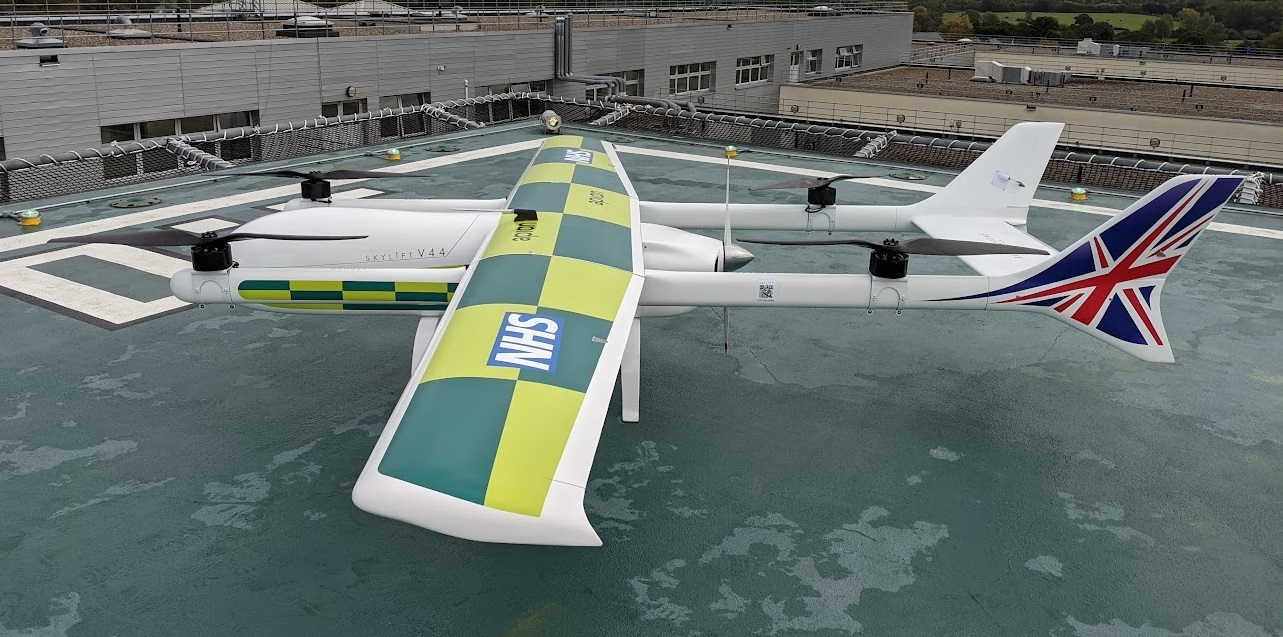
Many of the leading global healthcare companies and health service providers are already implementing sweeping changes and here in the UK the National Health Service (NHS) is leading the way. The paradox for the NHS is that while it accounts for around 5% of the country’s carbon emissions it also provides over 7% of the UK’s GDP, buying in goods and services from over 930 suppliers. Recognising its responsibility, In 2020 the NHS became the first national health system in the world to commit to delivering a net zero service by 2040 through its ‘Greener NHS’ initiative.
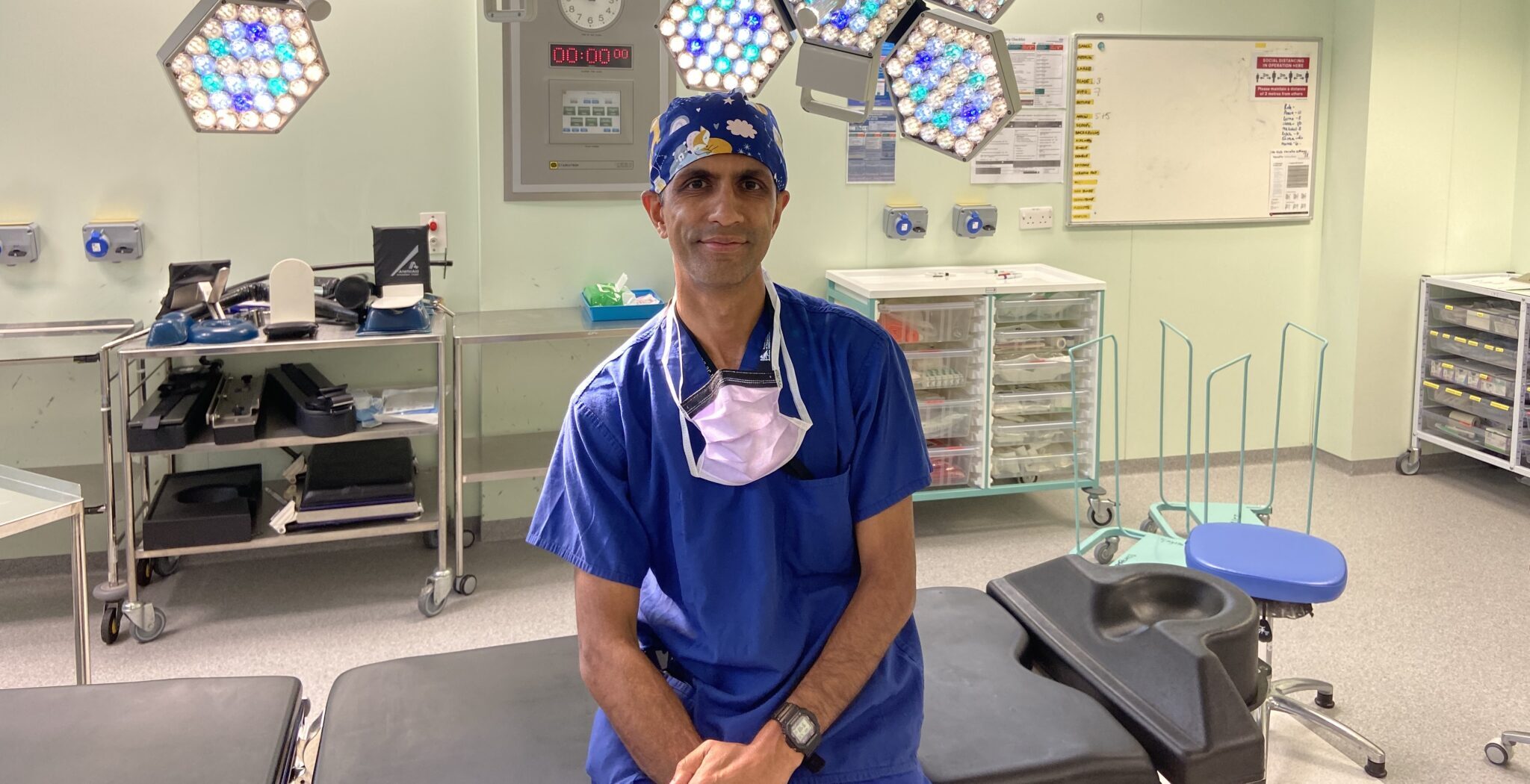
To achieve this, it will not only have to change the way it cares for patients across the hospital network; by opting to use more sustainable methods of treatment, but it will have to radically transform the way it selects and uses products and services, driving change across its entire supply chain network. The NHS believes that reaching the Paris Climate Change Agreement could see over 5,700 lives saved from improved air quality, 38,000 lives saved from a more physically active population and over 100,000 lives saved from healthier diets, each year.
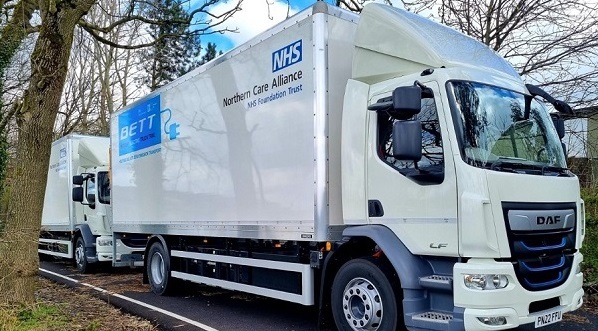
The NHS and other global healthcare organisations cannot make these changes alone. Engineering will and is playing a significant role in improving care provision and in developing the technology that clinicians use. It is then, engineering that will drive the development and adoption of sustainable and green technology alternatives for the healthcare sector going forward.
In this month's episode Helen speaks to Dr Nick Watts Chief Sustainability Officer of the NHS, who knows just how critical tackling the NHS’ sustainability issues are and what it’s responsibility is to addressing the climate crisis.
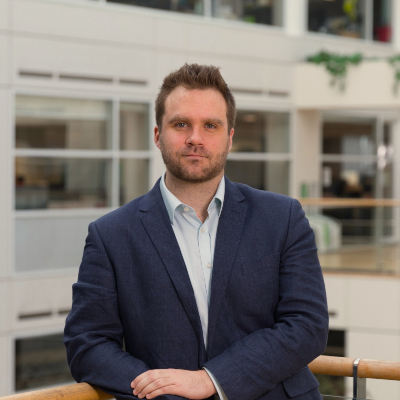
Nick is responsible for the NHS’s commitment to deliver a world-class net zero emission health service. He leads the ‘Greener NHS team’ across the UK, which focuses on improving the health of patients and the public through a robust and accelerated response to climate change and broader sustainability agenda.Nick is a medical doctor licensed in Australia and the UK, and has trained in population health and public policy. He is a Member of the Royal College of Physicians’ Faculty of Public Health, and an Honorary Associate Professor of University College London’s Institute for Global Health.
Prior to the National Health Service, Nick worked internationally as the Executive Director of the Lancet Countdown and the Lancet Commission on Health and Climate Change, a collaboration of UN agencies and academic centres across the world. He has also focused on engaging the health profession on the links between public health and climate change, having founded both the Global Climate and Health Alliance and the UK Health Alliance on Climate Change.
Useful Links

Monday Nov 28, 2022
Monday Nov 28, 2022
In the second part of this month’s episode Helen speaks with Ian Clark, managing director of Ian Clark Restoration and Engtech fellow of the institution.
Ian is unreservedly passionate about the restoration and preservation of our historical and technological achievements, and it has been a part of his life for over 40 years. He has worked with the likes of english heritage, the national trust and hundreds of national and international organisations, conserving firearms, statutes, submarines, windmills and everything in between. He has received numerous awards for his work and his advocacy of conversation engineering and has played a leading role as a committee member of the heritage awards.
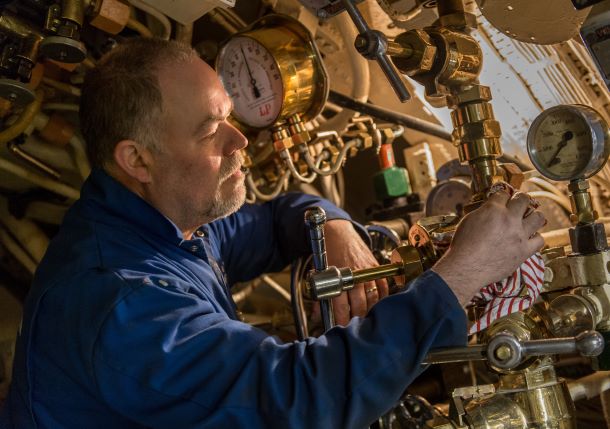
In part two of this episode on conservation engineering, Ian shares his thoughts on the value and legacy of the heritage awards and some of the ones that have significant meaning to him, why the preservation of buildings such as our own Birdcage Walk is so important and what his hopes are for the future of the heritage industry.
We would love to hear your thoughts and comments on this episode. If you would like to get in touch, email us at podcast@imeche.org
You can find more information about the work of the IMechE at www.imeche.org

Monday Nov 07, 2022
Monday Nov 07, 2022
Our world is filled with structures, statues and artefacts that humankind has created. Throughout our history, we have utilised different materials, methodologies and technologies to help us innovate and construct ever-more complex objects. It is only in more recent decades that society has recognised the significance of these items and the responsibility it has, to conserve and protect them for posterity.
Across the world, many of these incredible technological and artistic objects have been safeguarded and restored by heritage specialists and artistic conservators, so why would we be talking about preservation and heritage on an engineering podcast?
Well, believe it or not, the protection and recognition of our heritage; particularly those artifacts, locations and landmarks with links to engineering, have been a focus of the IMechE since the mid 1980’s with over 130 of them being celebrated through its Engineering Heritage awards. We can of course consider our own birdcage walk building among these historic places and objects of significance, as it too represents over 120 years of engineering tradition yet is itself in need of significant maintenance to remain a useful part of the imeche’s legacy.
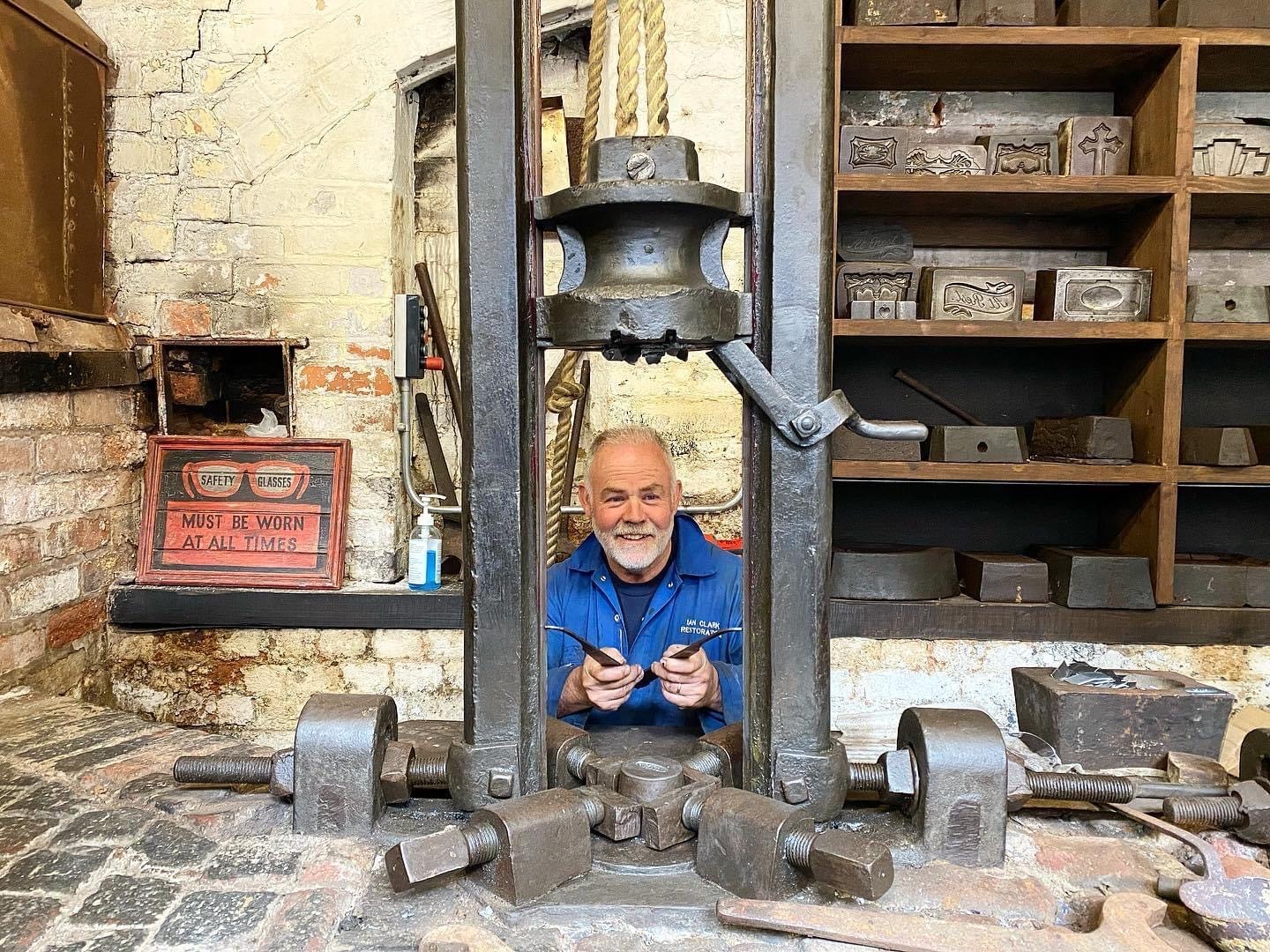
But what exactly is the engineer’s role in conversation? first thoughts bring to mind building conversation; the protection of architectural relics, their structural stability and repair - Like the recent work carried out on Big Ben in london for example and its easy to assume, that this would be the realm of the civil engineer. As it turns out, conservation engineering is a diverse, multidisciplinary profession, drawing, not just on the technical skills of the engineer, but on their creative and innovative talents to understand and protect all manner of objects, from artworks to engines.

In this month’s episode Helen had the opportunity to speak with Ian Clark, managing director of Ian Clark Restoration and Engtech fellow of the Institution. Ian is unreservedly passionate about the restoration and preservation of our historical and technological achievements, and it has been a part of his life for over 40 years. He has worked with the likes of english heritage, the national trust and hundreds of national and international organisations, conserving firearms, statutes, submarines, windmills and everything in between. He has received numerous awards for his work and his advocacy of conversation engineering and has played a leading role as a committee member of the heritage awards.
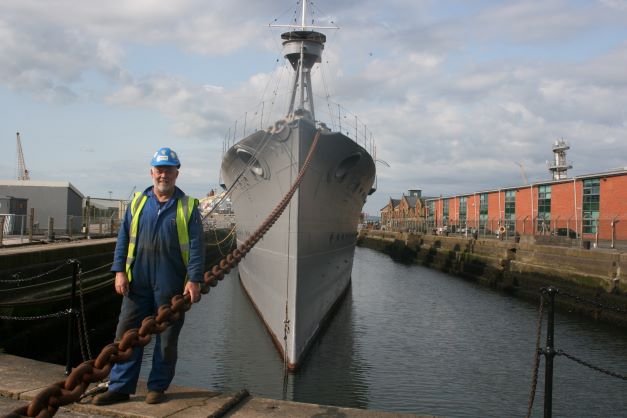
Ian had so much enthusiasm and so many engaging anecdotes to share, that He and Helen truly lost track of time and so this will be the first I2I two-part episode. In the first segment of the show, Ian talked about the field of conversation engineering, how it came to be part of his life and career and what opportunities there are for engineers looking to join this small community.
We would love to hear your thoughts and comments on this episode. If you would like to get in touch, email us at podcast@imeche.org
You can find more information about the work of the IMechE at www.imeche.org
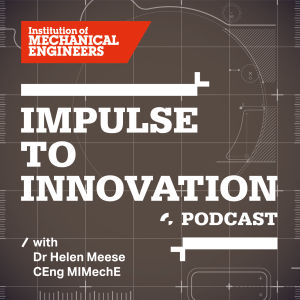
Monday Oct 17, 2022
Season 3 Episode 9: From Classroom to Competition - The Design Challenge
Monday Oct 17, 2022
Monday Oct 17, 2022
Throughout this year Helen has attended several of the Institution’s challenge events in which students from across the UK and internationally, come together to compete for some of engineering’s most converted prizes and titles. This month she was able to travel to IMechE HQ and meet up with the teams, judges and sponsors at one of these competitions, the final of the Design Challenge.
The Design Challenge gives first and second year undergraduates a taste of ‘real world’ engineering, challenging them to design, create, present and run a device to a strict technical specifications. The completion is intended to complement their academic studies and has been incorporated into several university degree courses as part of their project modules. The Challenge is open to teams of up to five students. These teams compete in local regional competitions from March to May, leading to a national final for the regional winners hosted at the Institution at the start of the following academic year.
The challenge is made up of four key elements:
- The design, build and test of a device to compete with other teams
- Production of a poster to publicise the team’s work - demonstrating the team’s ability to sell their design solution
- A short presentation explaining the design and development of the device - demonstrating the team’s verbal ability
- A peer review where all students have the chance to vote for the best engineered solution to the problem
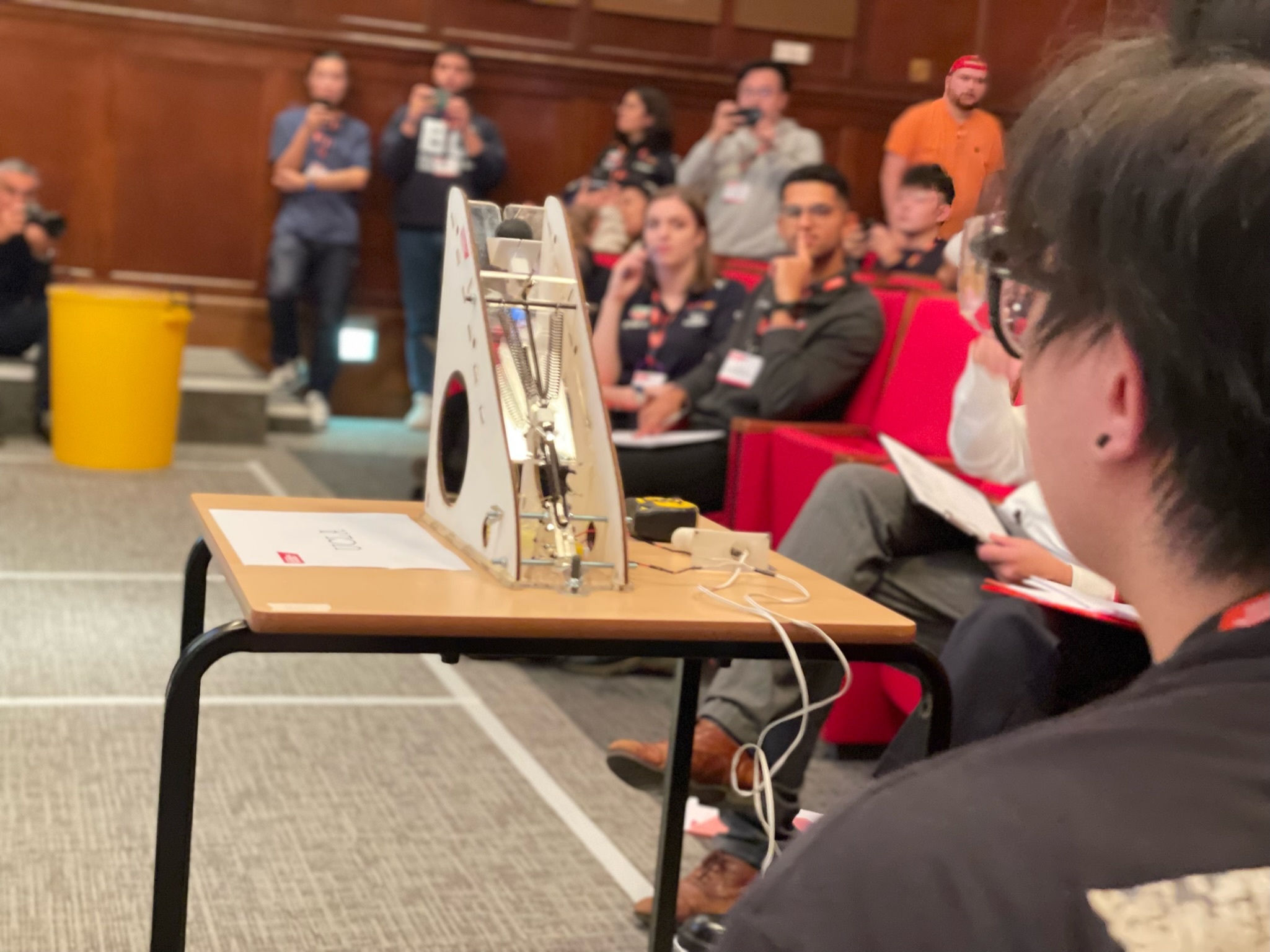
This year the students were tasked with building a line launcher, based on those used for RAS systems on naval vessels. Despite the first year teams only having £30 to spend on their design, the quality and level of construction of the devices were way beyond expectations and the competition was extremely close; coming down to a matter of a few points between the teams on the final scores.
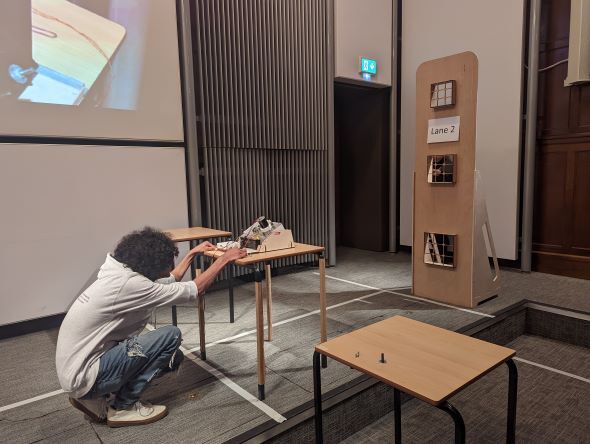
Between the presentations and heats Helen chatted to Tim Baker, Chair of the Design Challenge completion. Founder of the Design Challenge and chair of the northeast regional competition David Ball. Bridget Ogwezi Senior Academic Development Manager at ANSYS UK and Ioanna Pierou, Mechanical Design Placement Student, from Red Bull Powertrains Limited and previous competator in the challenge.
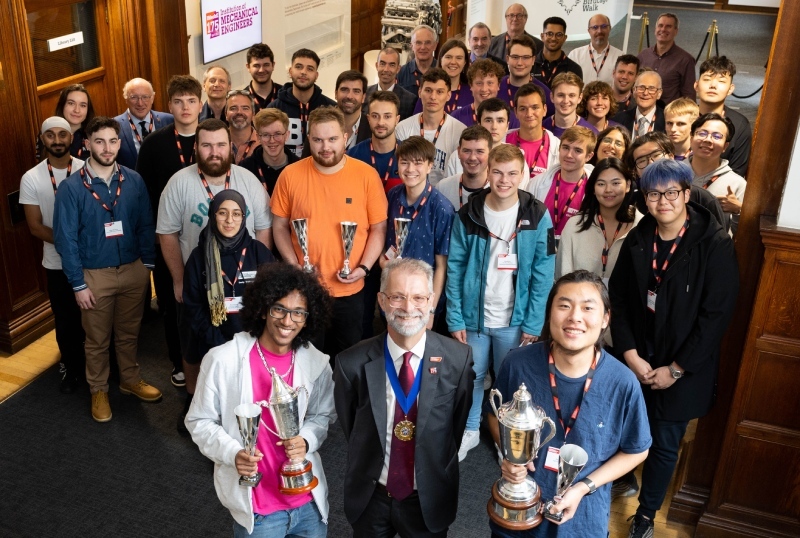
Useful Links:
How to enter the Design Challenge
Winners of the 2022 Design Challenge
online courses & software provided by the competition sponsors
We would love to hear your thoughts and comments on this episode. If you would like to get in touch, email us at podcast@imeche.org
You can find more information about the work of the IMechE at www.imeche.org

Thursday Sep 08, 2022
Season 3 Episode 8: Apprentice Automation Challenge 2022
Thursday Sep 08, 2022
Thursday Sep 08, 2022
In this months episode Helen hosted a live show from the Apprentice Automation Challenge, held at the MTC, Coventry.
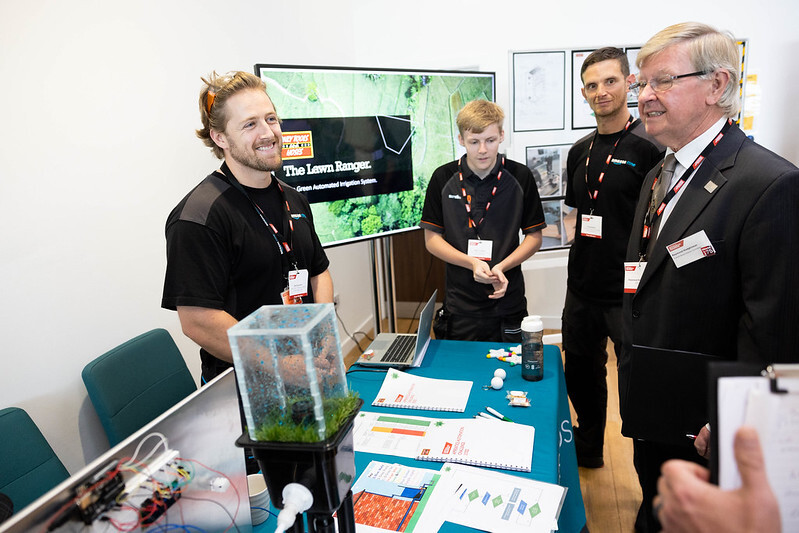
The Apprentice Automation Challenge provides a brilliant opportunity for talented apprentices to compete in an innovative design and manufacturing challenge to improve an everyday home or garden device.
Organised by the Institution's Manufacturing Industries Division’s Young Members Committee, it engages with teams of apprentice engineers to design, develop and build a fully working system that solves a real-world problem.
All teams submit a report that includes a full design specification, manufacturing instructions, user manual and business case. The Challenge culminates in a live final showcase where teams are able to demonstrate their working prototypes and respond to questions from the judging panel.
This year saw eight teams taking part with technical prototypes varying from plant watering devices to fridge content monitors.
This years overall winners were Team Leonardo SAL for their plastic waste-saving prototype.
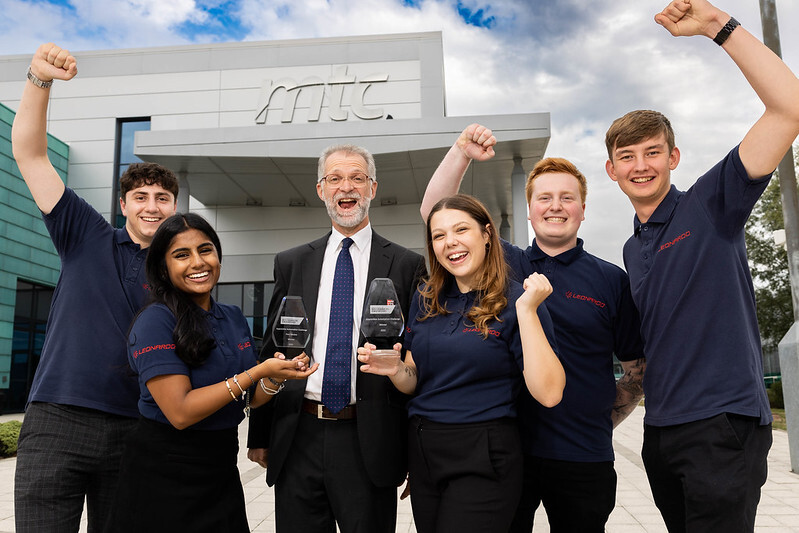
Helen interviews the AAC Chair Jason Yearsley, Head Judge Toby Heagerty and Leonardo Team Mentor Chris Sutton during our live show which took place on the 2nd September.
Useful links:
https://www.imeche.org/events/challenges/aac-challenge

Wednesday Aug 03, 2022
Wednesday Aug 03, 2022
With just five months to the official end of our 175th anniversary it seemed appropriate to take some time to speak with, not just one president, but three!
While the role of President is considered an honorary position as titular head of the Institution, it is the highest accolade any member can achieve. Each of the Institution's Past-Presidents has not only spent many years actively volunteering within the Institution on regional and divisional boards, Council and Trustee Board, but has also made a significant contribution to their specific field of engineering.

IMechE 137th President Phil Peel
Our most prominent past president is of course George Stephenson, father of the railways, but we have had 136 Presidents since George, working in areas such as steam turbine and jet engine design, tribology and materials applications, hydraulic systems and power generation to mention just a few.

Peter Flinn, 136th President, 2021/22
Although they are only in office for one year they are kept extremely busy, not only ensuring the Institution is run effectively through the executive team and that strategic and financial objectives are achieved through our various boards, but they also represent us beyond Birdcage Walk; working closely with Presidents from other PEIs to raise the profile of engineering as well as engaging with politicians and industry leaders to address societal challenges.
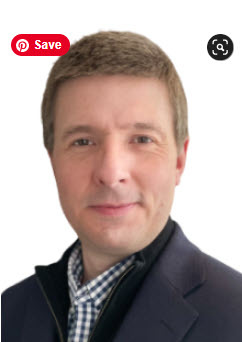
Giles Hartill, President-Elect will be our 138th President
You would think then that the chances of getting three of them in a room together were rather low, but we know how to pull strings here at Impulse to Innovation. In today’s episode Helen talks to Presidents past, present and future about how they see the role of IMechE President, why having a strategic plan for the future is so vitally important, our relevance to society in a digital world, if we can ever have any impact on Government policy and why the Institution sees equality, diversity and inclusion as the responsibility of all its members.
Useful Links:
Watch President Phil Peel's Inaugural Speech
Read President Phil Peel's Inaugural Speech
Meet The Institution's Trustee Board
Past Presidents of the Institution - Biographies
We would love to hear your thoughts and comments on this episode. If you would like to get in touch, email us at podcast@imeche.org
You can find more information about the work of the IMechE at www.imeche.org

Thursday Jul 07, 2022
Thursday Jul 07, 2022
Ask most people what comes to mind when they think of mechanical engineering, and many will respond with railways and trains.
Our foundations as an institution are indeed firmly built on the traditions of railway engineering, with engineers who saw themselves no longer as civil engineers; building static infrastructure, but as innovators of moving machines, able to cross vast distances at speed, transporting limitless amounts of goods and people.
Our first two Presidents, George and Robert Stephenson are still revered today as the fathers of the railway industry and as we celebrate the institution’s 175th anniversary, we can look back with some pride at the achievements and innovations that continue to be developed across the rail industry today.
Those innovations can of course only take place if we have a new generation of engineers to drive them forward. The education of our future engineering workforce is undeniably woven into the institution’s ethos and mission across all aspects of engineering, and rail continues to play its part in delivering that objective. This passion and enthusiasm for educating the next gen is manifested in the Institution’s railways challenge held for the last 11 years at Stapleford Miniature Railway in Leicestershire.
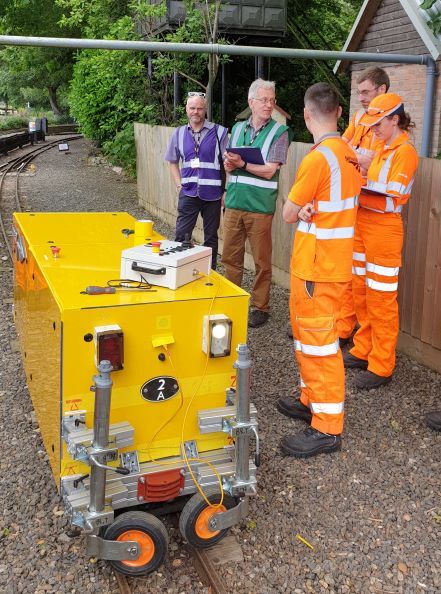
Planned and delivered by a team of institution volunteers from the railway division, the competition, which brings together teams of international young engineers and apprentices from across the railway sector is, as one would expect, timetabled and executed with the upmost precision, with teams being tested on their technical skills, engineering knowledge and business acumen over three intense and long days.
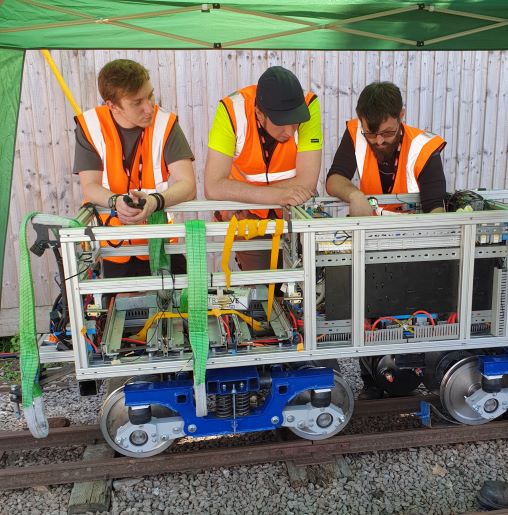
The competition is friendly, yet fierce as the Grand Champion’s trophy is on show for all to see in the judging tent, making sure that everyone of the competitors plays their part.
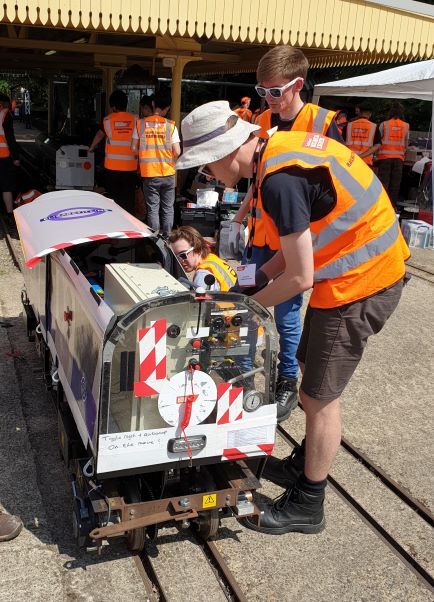
It doesn’t matter if you are an ardent train fanatic, a keen enthusiast of engineering outside your own field like me or just a curious spectator, you cant help but get drawn in to the excitement and frustration as the completions days progress. And of course, the whole thing is topped off by a ride along the mile long track with the wind in your face and the clackity clack of the tracks beneath you.
What could be more evocative of our engineering ingenuity?

In this months episode Helen and the HQ AV team headed out to Leicestershire for a live recording of the sights and sounds of the Railway Challenge and spoke with the Challenge’s chair, several of the volunteer judges as well as team members as they prepared their locomotives for the first day of tests.
We wont give any spoilers as to who won, but you can read all about the winners and the teams participating in the link below.
Useful Links:
Aachen Reuschling win Railway Challenge 2022
The Railway Challenge Competition Details
IMechE Railway Division Webpage
We would love to hear your thoughts and comments on this episode. If you would like to get in touch, email us at podcast@imeche.org
You can find more information about the work of the IMechE at www.imeche.org

Monday Jun 06, 2022
Monday Jun 06, 2022
At the dawn of the Industrial Revolution, engineers devoted their efforts almost entirely to making devices that functioned reliably and profitably, but with little attention to safety. Yet frequent disasters, mainly as a result of the growing use of high-pressure steam, led engineers to question increasing numbers of deaths and to assess problems with the technologies they were developing. Indeed, when Richard Trevithick began experiments with high-pressure steam engines to increase both efficiency and power, James Watt (and his partner Matthew Boulton) petitioned Parliament to pass an act outlawing the use of such engines as a public danger.
The protection of people from harm has increasingly been a focus of many fields of engineering since the nineteenth century. Over time, engineers began to propose design changes and build-in innovations to reduce risk, and thus the industry of safety engineering was born.
Safety engineering deals with accident prevention, reducing the risks associated with human error, and integrating safety benefits in engineered designs. The purpose of safety engineering is to control risk by reducing or completely eliminating it. It also aims to reduce the rate of failures and if failures do occur, that they are not life threatening. This work has led to the development of safety codes and standards governing technology design, including the use of natural gas and electricity, the building and use of steam boilers, and the storage and use of explosives.
Engineering societies and institutions like the IMechE, whose original charters stressed the promotion and facilitation of the profession's work, where, by the mid-twentieth century, beginning to impose safety as a primary moral duty of the engineer.
Today there are many engineers whose work is devoted entirely to the protection of the public and workers from the hazards of technology and natural phenomena such as Fire protection engineering and automobile safety.
Today these engineers often make use of computer models, prototypes, or recreations of situations to assess potential hazards and risks such as crash testing, and consider not only the situation or use of the product but the design processes applied, material reliability, legislation, and human factors.
The intertwining of engineering and safety will undoubtedly intensify in the future in response to constantly rising public expectations and the ubiquitous use of technology in our lives. So how do we make those risks as low as reasonably practicable?
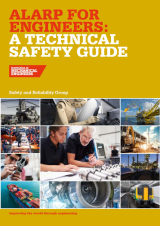
In this months episode Helen discusses why safety and risk play such a key role in engineers’ decision making processes, the need for safety legislation and its impact, and how engineers mitigate risks using ALARP with guest chartered engineer Keith Miller, Technical Safety Consultant and one of the lead authors of the IMechE’s ALARP for Engineers Guide, published in 2021.
Useful Links:
ALARP for Engineers - A Technical Guide
"Engineers work in many disciplines but all of them have the ability to affect societal wellbeing to a very significant extent. The privilege of having the skills and knowledge to contribute so much to such important areas of life clearly brings with it the need for wise ethical judgement when exercising that privilege."
Royal Academy of Engineering 2011
With power comes great responsibility, and as engineering professionals we exercise significant power over the decisions we make on behalf of society every day. Just like doctors, Engineers are faced with ethical dilemmas where they can find themselves making life or death decisions.
Engineering ethics is a growing field of study that looks at the moral decision-making that applies to the practice of engineering. The field examines and sets the obligations by engineers to society, to their clients, and to the profession as a whole.
Engineering professionals work to enhance the wellbeing of everyone, and in doing so, they are required to maintain and promote high ethical standards and challenge unethical behaviours.
There are four fundamental principles for ethical behaviour and decision-making outlined by the Royal Academy of Engineering & the Engineering Council which include.
- Honesty and integrity
- Respect for life, law, the environment and public good
- Accuracy and rigour
- Leadership and communication
As a professional body, The IMechE expects its members to maintain high standards of ethical conduct which requires us to ‘Protect members of the public’, ‘Protect IMechE members’ and ‘Uphold the reputation of the Institution and the wider engineering profession’.
To achieve this we have a ‘Code of Conduct’ which outlines these requirements and to which members are expected to abide by.
In the second segment of this episode, Helen talks with fellow of the IMechE, past Trustee and Council member Matt Garside to get a personal view of the importance of ethics in engineering, why engineers should use their privilege wisely and how engineers will safeguard society in the future.
Useful Links:
RAE Webinar on Ethics in Engineering
Engineering Council Statement of Ethical Principles
We would love to hear your thoughts and comments on this episode. If you would like to get in touch, email us at podcast@imeche.org
You can find more information about the work of the IMechE at www.imeche.org

Tuesday May 03, 2022
Tuesday May 03, 2022
What if we could generate the power of our sun here on earth? Sounds like science fiction, but actually the application of complex maths and physics principles in understanding how we might generate fusion energy like that powering our sun, have been well understood since the 1950s and was made a reality in the 1990s, right here in the UK.
The heart of the Oxfordshire countryside resides tokamak energy. Founded in 2009 as a spin-off, the company has long and distinguished roots in the UK Atomic energy authority’s early fusion research at Culham.
Today they are leading the way in developing a truly commercial fusion energy supply, which has the potential of radically changing how we not only generate energy, but how we use it in the future.
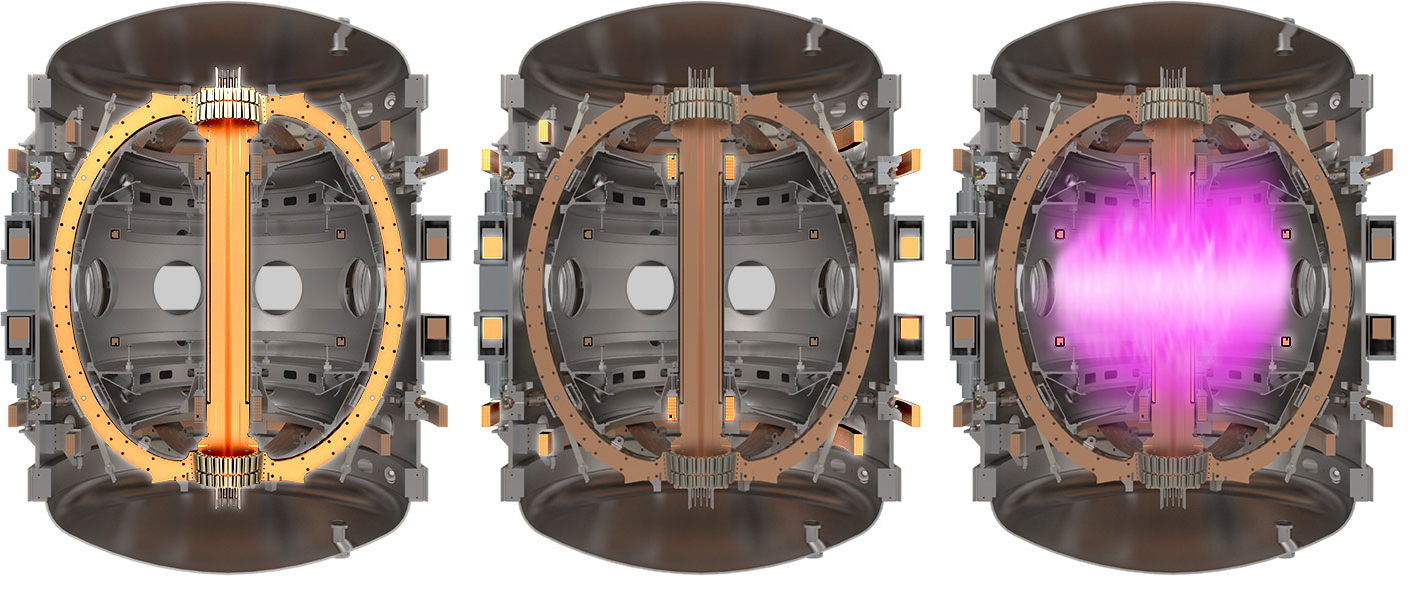
The tokamak team is over 160 strong, and is both a global and multidisciplinary community of scientists, engineers, technologists and commercial experts. The IMechE recognised the value of the work Tokamak energy were undertaking in 2015 when it became one of the first organisations to be supported by the Institution’s Stephenson Fund.
In this month’s episode Helen spoke to Tokamak Energy’s CEO Chris Kelsall and Senior HTS Magnet Development Engineer Greg Brittles about why fusion is considered such a viable energy source, the impact it might have on the green energy agenda and about some of the innovative breakthroughs being made as a result of the tokamak’s development.
Useful Links:
IMechE Video on Fusion Development at Tokamak Energy
Understanding the basics of Fusion Energy
PE Magazine report on Sustainability
We would love to hear your thoughts and comments on this episode. If you would like to get in touch, email us at podcast@imeche.org
You can find more information about the work of the IMechE at www.imeche.org

